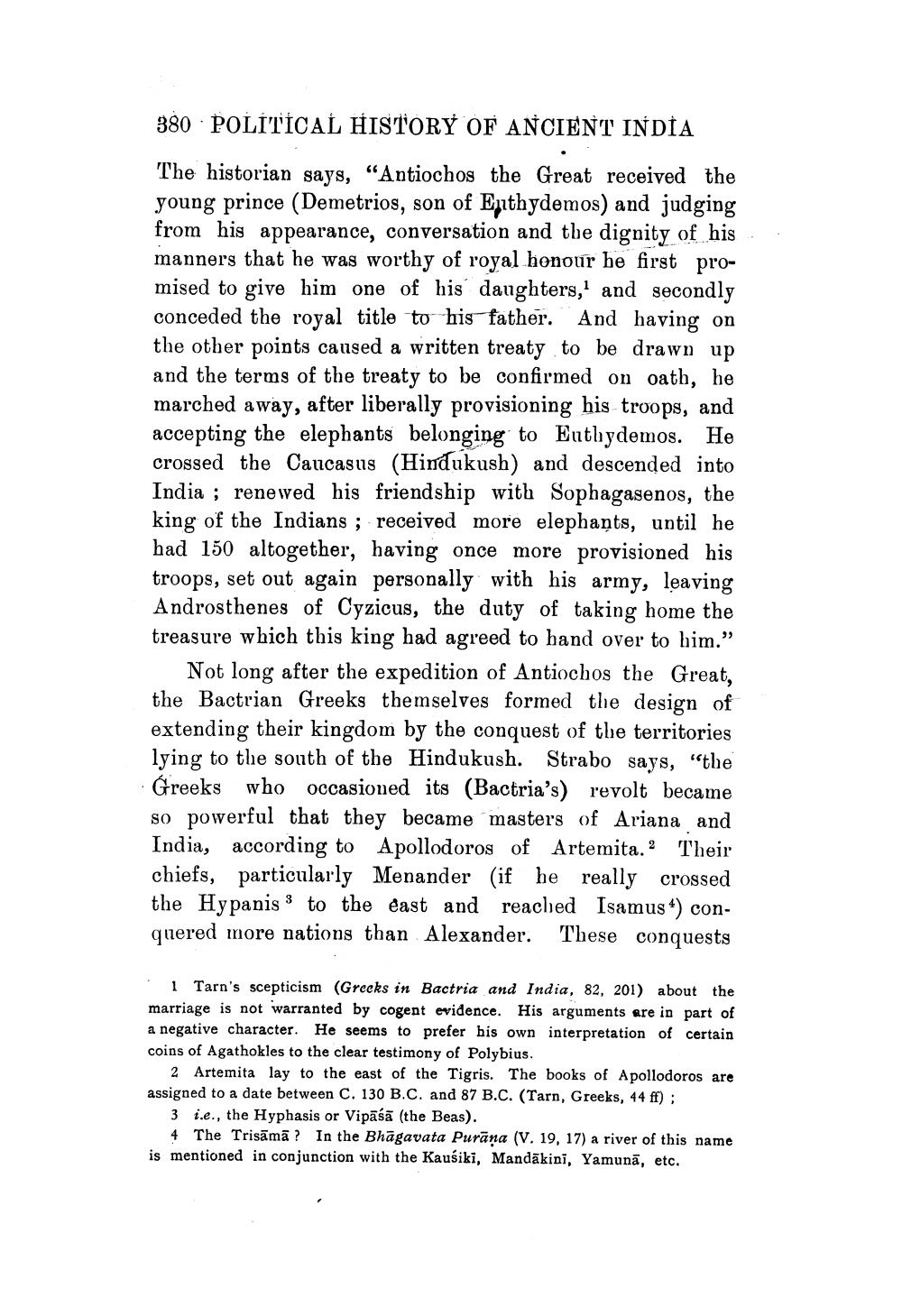________________
380 POLITICAL HISTORY OF ANCIENT INDIA The historian says, "Antiochos the Great received the young prince (Demetrios, son of Enthydemos) and judging from his appearance, conversation and the dignity of his manners that he was worthy of royal honour be first promised to give him one of his daughters, and secondly conceded the royal title to his father. And having on the other points caused a written treaty to be drawn up and the terms of the treaty to be confirmed on oath, he marched away, after liberally provisioning his troops, and accepting the elephants belonging to Euthydemos. He crossed the Caucasus (Hindukush) and descended into India ; renewed his friendship with Sophagasenos, the king of the Indians ; received more elephants, until he had 150 altogether, having once more provisioned his troops, set out again personally with his army, leaving Androsthenes of Cyzicus, the duty of taking home the treasure which this king had agreed to hand over to him.”
Not long after the expedition of Antiochos the Great, the Bactrian Greeks themselves formed the design of extending their kingdom by the conquest of the territories lying to the south of the Hindukush. Strabo says, "the Greeks who occasioned its (Bactria's) revolt became so powerful that they became masters of Ariana and India, according to Apollodoros of Artemita.Their chiefs, particularly Menander (if he really crossed the Hypanis 3 to the east and reached Isamus ) conquered more nations than Alexander. These conquests
1 Tarn's scepticism (Greeks in Bactria and India, 82, 201) about the marriage is not warranted by cogent evidence. His arguments are in part of a negative character. He seems to prefer his own interpretation of certain coins of Agathokles to the clear testimony of Polybius.
2 Artemita lay to the east of the Tigris. The books of Apollodoros are assigned to a date between C. 130 B.C. and 87 B.C. (Tarn, Greeks, 44 ff);
3 i.e., the Hyphasis or Vipāśā (the Beas).
4 The Trisāmā? In the Bhāgavata Purāna (V. 19, 17) a river of this name is mentioned in conjunction with the Kauśiki, Mandakini, Yamunā, etc.




